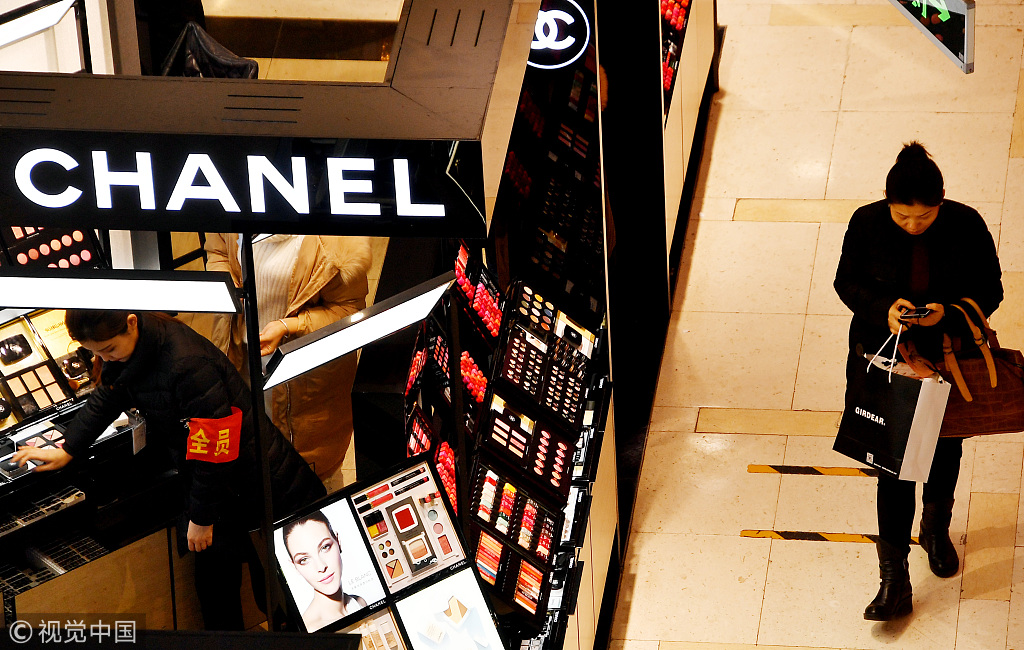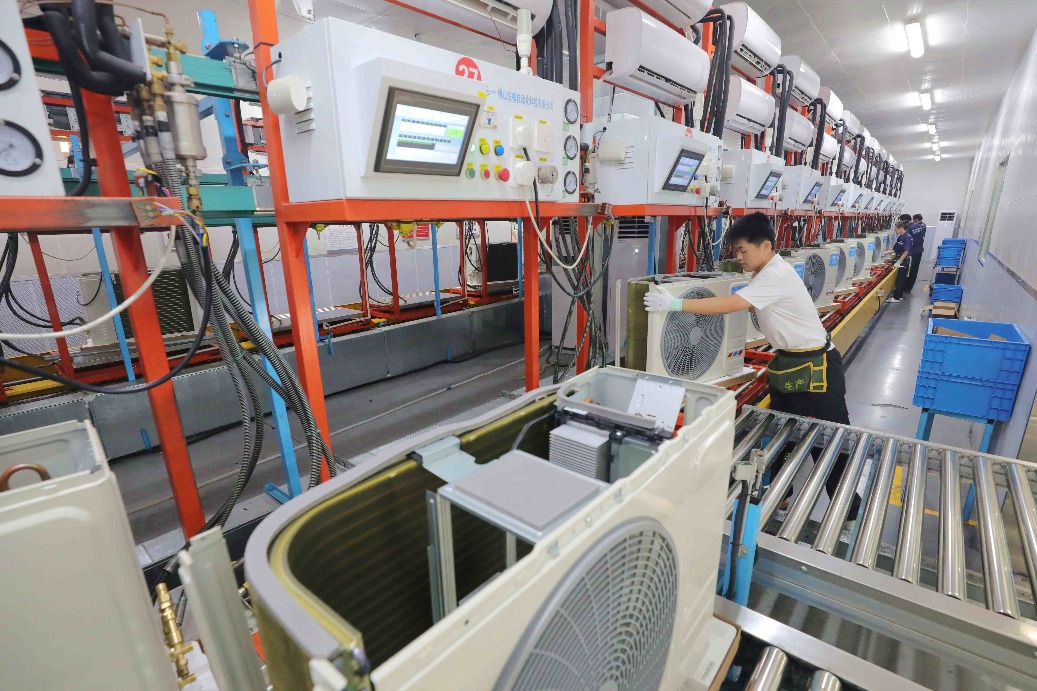Tariffs to fall on home appliances, cosmetics


The State Council, China's Cabinet, decided on Wednesday to further cut tariffs on a number of imported goods starting on July 1. The decision, at an executive meeting presided over by Premier Li Keqiang, was described as continuing the country's opening-up to benefit domestic consumers and boost industrial transformation.
Average tariff rates for clothes, shoes, hats, kitchenware and sports products will be reduced to 7.1 percent from the current 15.9 percent, according to a statement released after the meeting.
Average rates for household appliances like washing machines and refrigerators will drop to 8 percent, 12.5 percentage points lower. Tariffs on aquatic products and mineral water will be 6.9 percent on average, down from the existing 15.2 percent, while cleaning products, cosmetics and some healthcare products will be levied at 2.9 percent, down from the present 8.4 percent, the statement said.
Further tariff cuts will be beneficial to opening-up and meet public demand, which will also push forward quality improvements and industrial upgrading, the statement said. It also said related departments should strictly carry out the policy and prevent any price increases by middlemen as a result.
On Wednesday, the State Council also decided that China will roll out more foreign-investor-friendly measures and widen market access.
Commitments made to cancel or ease restrictions on foreign investment in such manufacturing sectors as automobiles, shipping vessels and aircraft will be promptly implemented.
The mechanism regarding qualified overseas investors will be expanded. This will encourage such investors to participate in futures trading of crude oil and iron ore and provide more support to foreign-invested financial institutions in underwriting local government bonds.
"We must strive to preserve China's status as a major destination for foreign investment. Opening-up has driven China's reform endeavors in the past 40 years. Foreign-invested enterprises have been a significant contributor to Chinese exports. More importantly, they have brought to China industrial and value chains and spurred corporate reform and innovation," Li said.
Foreign investment in China hit a new high of 877.56 billion yuan ($136.7 billion) in 2017, up by 7.9 percent year-on-year, according to the Ministry of Commerce.
It was also decided at the meeting that investment facilitation will be enhanced based on international standards. The negative list in the market access of foreign investors will be revised and released before July 1.
Provincial governments will be given the authority to set up or alter the businesses of foreign-invested enterprises with total investment of $1 billion or less. Filing requirements in the pilot program will be relaxed to give eligible multinational companies greater flexibility in managing their foreign currency capital in China.
Permitting procedures for foreign talent will be simplified, and eligible foreign employees hired by enterprises registered in China will get work visas within two workdays.
Li called for a sense of urgency in attracting foreign investment, including bigger steps in expanding opening-up and tackling protectionism.
It also was decided that the legitimate interests of foreign investors will be better protected. All infringements, counterfeiting, violations of commercial secrets and "trademark squatting" will be severely dealt with. The compensation ceiling for intellectual property infringements will be significantly raised. Development zones at national levels will be encouraged to lead efforts to better absorb foreign investment.
More policy support in credit lines, land use and social security will help reduce business costs. Foreign investors will be encouraged to invest more in central and western regions and in sectors like modern agriculture, ecological preservation, advanced manufacturing and modern services.
"We need to aim higher in attracting foreign investment. We should raise our innovation capacity in the new round of opening-up and see that all intellectual property is fully protected. No forced technology transfer will ever be imposed on foreign-invested enterprises and IPR infringements will be penalized to the full extent of the law," Li said.




































